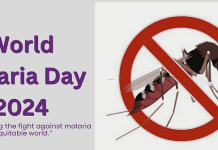
The World Health Organisation has alerted that attacks on hospitals, ambulances and other healthcare facilities in Ukraine have increased rapidly in recent days, noting that the country is running short of vital medical supplies.
The WHO disclosed this on Tuesday, noting that this development calls for serious concern.
As reported by Yahoo News, the U.N. agency had confirmed on Monday that at least nine people had died in 16 attacks on healthcare facilities since the start of a Russian invasion of Ukraine on February 24. It, however, did not say who was responsible.
The WHO’s senior emergency officer for Europe, Catherine Smallwood, told a news briefing that the tally included incidents where ambulances had been commandeered for purposes other than emergency healthcare.
“We will continue to update those numbers. They’ve been increasing quite rapidly over the past few days,” Smallwood said.
The WHO said it is working to rapidly provide medical supplies to Ukraine, where oxygen, insulin, personal protective equipment, surgical items and blood products are running low.
The supply of oxygen, children’s vaccines, especially against polio amid an outbreak, and mental health expertise are among the WHO’s top priorities for the region, he said.
In a separate statement, the European Centre for Disease Prevention and Control said countries neighbouring Ukraine that are hosting Ukrainian refugees should include them in their vaccine programmes against a range of diseases.
They should prioritise vaccinating against COVID-19 and polio and also against measles, as the current inoculation coverage is insufficient to prevent measles outbreaks, the ECDC said in a statement.
“Crowding in bomb shelters and reception centres could facilitate the start of a measles outbreak, particularly as spring coincides with the natural seasonality of the disease,” the WHO added.













